The Role of a Fertility Pharmacy
Starting fertility treatment for any reason can seem like information overload. After working closely with your fertility specialist to determine what treatment is best for you, you’re now at the point where you need to fill your prescription to get started. However, figuring out where to go from here can be an easier choice, thanks to provided help from fertility pharmacies like VFP Pharmacy Group.
Specialized pharmacy for specialized service
While your local pharmacy plays an important role in your community, they may be unable to meet these needs due to the sheer number of prescriptions they fill each day. Unlike other prescriptions you can pick up at the regular pharmacy, fertility medications are often injectable, and require specialized equipment to store and handle them. On top of that, patients may need more one-on-one guidance and instruction than your local pharmacy is able to provide.
Unlike a regular pharmacy, a fertility pharmacy is staffed with experts to help guide you through any questions that you may have–no matter what time or day it is. To make your experience better, we even offer free virtual injection and medication lessons to help you feel confident as you begin your treatment. On-call pharmacists and clinical educators are available after hours, to help with any emergency questions about your prescription as well.


An experience tailored to you
Along with the ability to work directly with your doctor or fertility specialist to streamline the process, a specialty pharmacy also offers more convenient ways to get your prescriptions and access to additional financing options. VFP Pharmacy Group patients can pick up their prescription at the closest location to them or have it delivered at the day and time that works best for them. Our team works with patients to help identify and leverage any financing programs available, whether that be manufacturer discount programs or coupons to lower self-pay costs or figuring out how to get the most out of your insurance coverage.
All in all, fertility pharmacies create a tailored experience that patients need. Patient-focused care is something we at VFP Pharmacy Group have excelled at for the last 30 years, and it will continue to be an essential part of what we do. Let’s show you how.
How to Get Your Fertility Prescription
Your prescription, your choice
The time has come to fill your fertility prescription, and even though you may have walked through all options with your doctor, it’s common to still have questions like:
- Who do I go to if I need help figuring out my medication?
- What happens when I need to refill my fertility prescription?
- How do I know my medication is being stored properly?

Here to answer your call
To get started, your doctor or clinic can send us your prescription by fax, through your clinic, or drop it off in person. With locations spread throughout the country (in Arizona, California, Illinois, and Massachusetts), your fertility prescriptions can be picked up at the one closest to you. We also offer delivery options to make it easier for those who can’t get to a physical location. This way, you can pick the day and time that works best for you to have your fertility prescriptions dropped off at your home or office.
We understand that starting your treatment can bring up a wide range of emotions, which is why we work to provide you with the resources you need to feel empowered. Along with in-person, email, or phone support, we offer free, virtual fertility injection and medication lessons to ease the intimidation of self-administering your fertility prescription. Spoiler alert: It’s easier than you think.
During this call, you’ll work directly with one of our trained clinical educators, who will show you how to administer your medications and answer any specific questions you may have. This session will be recorded so you can refer back to it, and our on-call pharmacist and clinical educators are available to answer any questions you may still have afterward.
The Different Types of Fertility Medications
Everyone’s fertility journey is different, and treatment plans can vary. Fertility medications, as a result, greatly vary depending on the type and stage of your fertility plan. While your doctor will work closely with you to determine the best option, here are some of the common fertility medications to help you feel prepared.
Clomiphene Citrate
Clomiphene Citrate, also known by its brand name Clomid, is used to stimulate or increase ovulation. With this medication, your body will help produce more follicle-stimulating hormones (FSH) and luteinizing hormones (LH). This medication should be kept in a closed container away from light, heat, and humidity and stored at room temperature.

Common side effects:
- Headaches
- Abdominal discomfort/bloating
- Mood swings
- Hot flashes
- Ovarian hyper-stimulation or enlargement
Letrozole
Another option to help correct or support ovulation is Letrozole. This medication usually produces one follicle, and is an excellent option for those with polycystic ovarian syndrome (PCOS). This medication should be stored at room temperature.
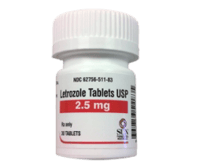
Common side effects:
- Dizziness
- Mood changes
- Headaches
- Fatigue
- Joint pain
- Weight changes
- Hot flashes
- Nausea
Gonadotropins
Gonadotropins are a common type of fertility medication used on their own or in conjunction with others, like Clomid. This injectable fertility medication’s direct action on the ovaries produces follicles, the fluid filled sacs that contain oocytes/eggs.
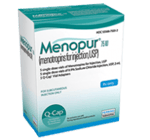


Different types of Gonadotropins include:
- Gonal-f
- Menopur
- Follistim
Storage requirements will vary depending on which type you are using, and your pharmacy will advise you on the method you need to follow.
Common side effects:
- Mood changes
- Discomfort at the injection site
- Nausea and vomiting
- Headaches
- Bloating
Gonadotropin Releasing Hormone (GNRH) analogues
Along with Gonadotropins, Gonadotropin Releasing Hormone analogues, or GnRH, prevent ovulation of developing follicles.
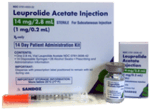


There are two different types of analogues used:
- GnRH agonists (Leuprolide)
- GnRH antagonists (Cetrotide, Fyremadel, and Ganirelix)
Storage methods can vary and will be provided by your pharmacy.
Common side effects:
- Abdominal pain
- Dizziness
- Nausea
- Injection site reaction
- Headache
hCG “Trigger” Medications
Required in IVF treatment, these medications cause the final maturation of the eggs within the follicles.





Some of the common types of this medication include:
- Pregnyl
- Novarel
- Generic hCG
- Ovidrel
- Leuprolide (a GNRH agonist, can also be used as a trigger medication)
Progesterones for luteal support
People in the process of getting either a fresh or frozen embryo transfer are typically prescribed progesterone for luteal support. This fertility medication is administered in the muscle or vaginally and helps prepare the uterus for implantation. Though this medication is often stored at room temperature, your pharmacy will advise you on the correct procedure.

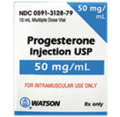
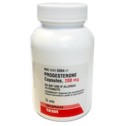
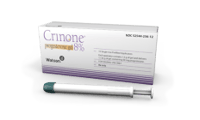
Common Progesterone products:
- Progesterone in Oil
- Endometrin
- Crinone
- Progesterone Capsules
- Progesterone Suppositories
Common side effects:
- Breast swelling or tenderness
- Injection site reaction
- Fatigue
- Vaginal discharge
- Abdominal discomfort
- Headache
Helping You Afford Your Fertility Medication
Focus on family, not finances

Let’s walk through some of the different payment options available:
Compassionate Care- EMD Serono
The EMD Serono Compassionate Care Program is a self-pay plan for approved patients who have a financial burden or are in the military. This funding can be used by those whose treatments aren’t covered by insurance.
Ferring Savings Plans
Ferring Savings Plans encompass a number of self-pay options, such as OneHeart, Heartfelt, HeartTomorrow, HeartBeat, and Heart for Heroes. These plans allow patients to pick the plan best for them and cover the costs of fertility services and medications.
Lending Club, Future Family, CAPEXMD, Ally Fertility
The Lending Club, Future Family, CAPEXMD, and Ally Fertility’s low monthly payment plans enable patients to make their service costs more manageable with smaller payments.
Making Fertility Medications Easier
Comfort through confidence
VFP Pharmacy is here to support you and feel confident navigating your medication through your fertility journey. We pride ourselves on giving patients peace of mind through our compassionate partnership.
Along with instructional videos on how to administer your fertility medications, we have other resources on our website, such as fertility handbooks, start guides, and support links. If you have specific questions, the team at VFP Pharmacy will be happy to work one-on-one with you. Let’s walk through some common steps you might take when administering your fertility medication.

![]()
Administration
Self-administering fertility medication can seem intimidating at first. When working with us, we’ll walk you through the process to help you feel confident when you get started.
![]()
Injection Administration
- Intramuscular sites
- Upper, outer buttocks
- Lower thigh
- Subcutaneous sites
- Upper, outer thigh
- Lower abdomen
- Upper backside of arms
- After selecting your injection site for your medication type, prep the syringe by pointing the needle up and slowly push it to clear it of air bubbles.
- Prep the injection site by wiping it with an alcohol wipe.
- While keeping the site taut or pinched, swiftly insert the downright needle into the site.
- For intramuscular injections, check for blood in the syringe by slightly pulling on the plunger. If there is blood, stop immediately.
- If no blood is present, slowly push down on the syringe plunger until all medication is released from the syringe.
- Discard needles and syringes in a specified container.
If you still need further assistance, check out our Fertility Medication Instructional Videos or contact us.
![]()
Disposing of leftover medication
If you find yourself with leftover medication after you’ve completed your cycle, there are a few ways to dispose of it. While you may want to help someone else in need, do not share leftover medication with anyone else, as it could be dangerous, and may be against the law. To safely discard your medication as well as sharps containers and leftover needles and syringes, you can contact your insurance company to see if they offer a medication disposal service. If your insurance does not offer this option, fire stations and police departments often have bins for leftover medication in their lobbies. These drop off sites can be found by going to www.safeneedledisposal.org.
©2025 VFP Pharmacy Group by Evernorth | Privacy Policy
